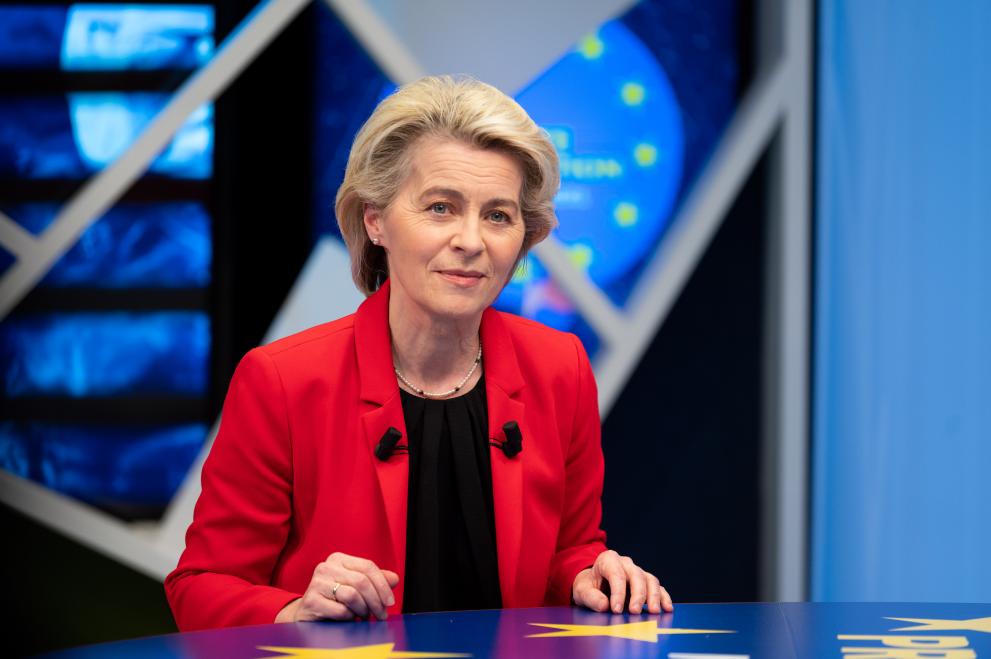
We remember all those who survived and the millions of Jewish women, men and children as well as all other victims murdered by the Nazi regime. In many ceremonies across Europe and the world their names will be called, their lives remembered.
This year marks also the 80th anniversary of the Wannsee Conference, the meeting that sealed the fate of European Jews. In that meeting the Nazis planned to systematically search for Jews across Europe to annihilate the Jewish people.
The Holocaust was a European disaster. Antisemitism led to this disaster. Antisemitism dehumanises the Jewish people. In Nazi Germany, this dehumanisation opened the door to the Shoah. We must never forget.
On this day, we also look to the future. After the war, Europe was built upon the promise of peace. And yet, antisemitism is on the rise again in Europe. It threatens Jewish communities in Europe.
Since the start of the pandemic, anti-Semitic conspiracy myths and disinformation has spiraled on- and offline. People marching European streets wearing the star of David, comparing pandemic measures with the genocide of the Nazi regime, trivialise the experience of Shoah victims. Holocaust distortion nourishes the rhetoric of hate. Every European needs to know the facts and learn about the Holocaust.
This is why, the European Commission presented its first-ever EU strategy on combating antisemitism and fostering Jewish life. It puts forward more than 70 concrete actions aiming at tackling antisemitism online, ensuring security of Jewish communities, creating a network of places “where the Holocaust happened” and reaching the public with reflections about a culture of remembrance in Europe.
The heart of our action is to ensure that Jews across Europe can live their lives in accordance with their religious and cultural traditions. Because Europe can only prosper when its Jewish communities prosper, too. Because Jewish life is an integral part of Europe's history and of Europe's future.
Background
The Commission put forward a strategy on combatting antisemitism and fostering Jewish life on 5 October 2021, to support EU countries and civil society in their fight against antisemitism. Holocaust Remembrance is an essential pillar of efforts to ensure that we never forget our history.
For the first time, on 27 January 2022, the European Commission will illuminate its headquarters, the Berlaymont building, with #WeRemember, joining the campaign co-organised by the World Jewish Congress and UNESCO in memory of the victims of the Shoah.
To raise awareness and counter Holocaust distortion, the Commission has launched and continues to roll out the campaign #ProtectTheFacts together with the International Holocaust Remembrance Alliance (IHRA), UNESCO and the United Nations.
In 2005, the United Nations General Assembly Resolution on the Holocaust Remembrance (60/7) designated 27 January as the international commemoration day in memory of the victims of the Holocaust. On 27 January 1945, the Allied Forces liberated the concentration and death camp of Auschwitz-Birkenau.
The Resolution urges every member nation of the UN to honour the memory of Holocaust victims and encourage the development of educational programs about Holocaust history, to prevent future acts of genocides. It calls for actively preserving Holocaust sites that served as Nazi death camps, concentration camps, forced labour camps and prisons.
On 21 January, the UN adopted a resolution aimed at combating Holocaust denial and urging member states and social media firms to help fight anti-Semitism.
For More Information
Details
- Publication date
- 26 January 2022
- Author
- Representation in Cyprus
